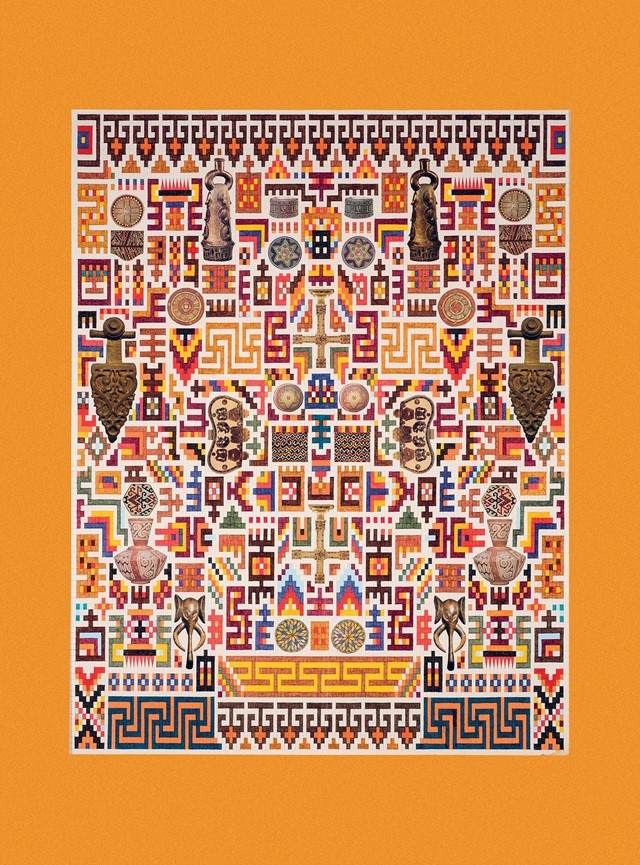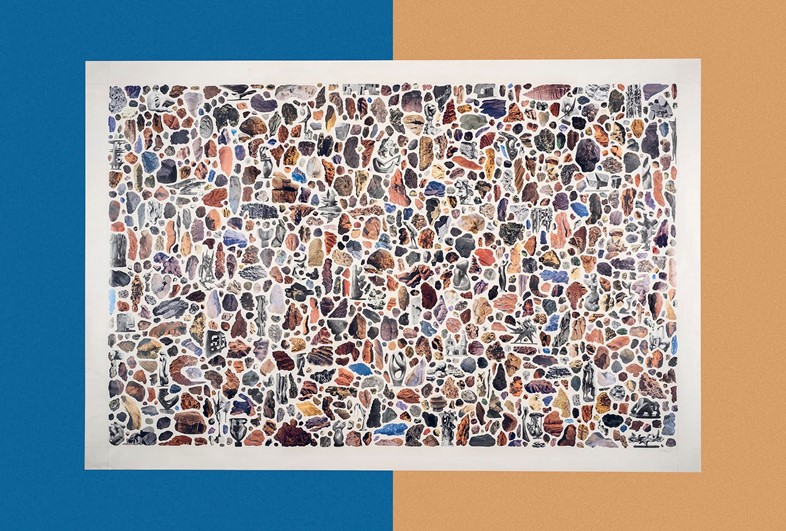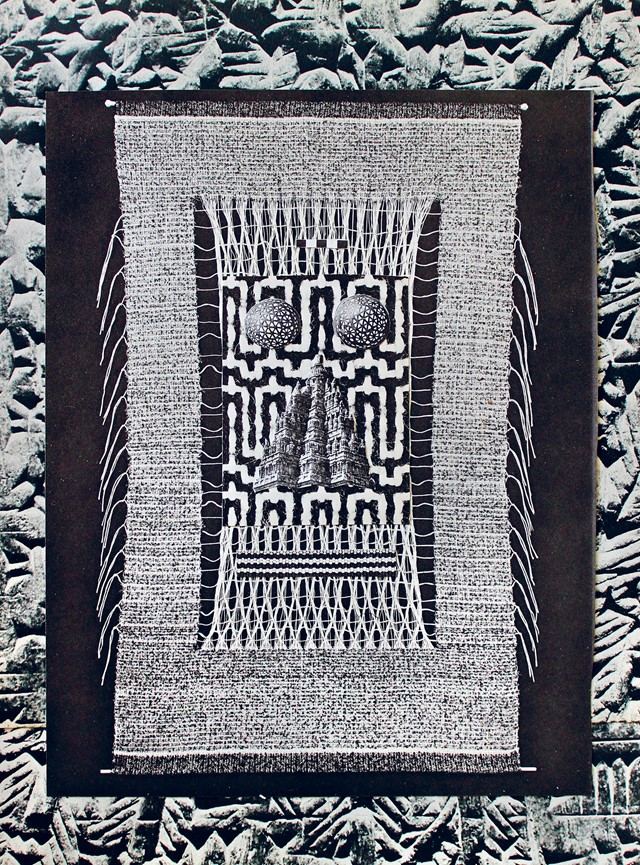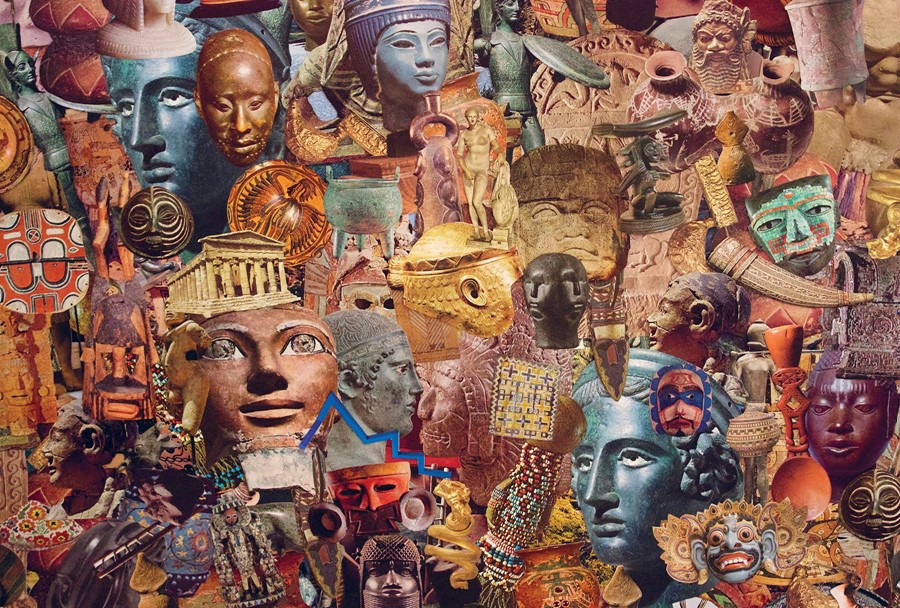Matthew Craven’s new book looks at art history textbooks through a kaleidoscopic new lens
The history of art is long, fluid and argumentative. Thousands of textbooks have been pumped out over the years, each one offering up a definitive answer to ‘what’ and ‘why’ in the moment of its publication, each one inevitably becoming obsolete. But for Matthew Craven, these volumes of outdated history are golddust – the source material for his vibrant collages of photography, pattern and print.
Craven’s latest project brings his process full circle with the creation of a book, PRIMER. In it, his extravagant, obsessive medleys of statues, ceramics and masks, framed or overlaid by geometric patterns, create a freewheeling, visual narrative at odds with the didactic nature of their textbook origins. Rather than being instructed in what to think, PRIMER prompts its reader to create connections between artworks without the tyranny of words. “I want to preserve the universal truths of these objects from our past,” says Craven. “No text is required to be intrigued and inspired by images.”
A monograph assembled from the known, the misunderstood and the overly familiar that transforms into a choose-your-own adventure in 4,000 years of art – here Craven discusses his ideas, his inspirations and his audacity.

On not giving context…
“Being ambiguous and leaving it up to the viewer’s interpretation is very important to me. I wanted PRIMER to be something you can just flip open and randomly explore, similar to the way I first find images and books when I'm scavenging a bookstore.”
On the limitations of working with found images…
“I really don’t think there are any. It is crazy how many of these textbooks are actually out there. Decades-worth of educational tools that no longer have use in our modern society. I will find a book on Amazon that a school is selling and they have 20 of them for sale for 99 cents apiece. It is like finding treasure. But I also make drawings that don’t use collage elements. For these I will reference patterns from the books I find, and mix that with my intuition from years and years of drawing.”

On the absence of words…
“The images are important to me, the text is suspect at best. They are all published in Europe or America, and their version of history is written from a completely Euro-centric point of view. I am not interested in this singular narrative. I want to preserve the universal truths of these objects from our past. No text is required to be intrigued and inspired by images.”
On the origins and shared history of his patterns…
“They all start with something found. Sometimes I reference pattern from a textile or a carving around the base of a sculpture. One of the first things that excited me when I first started using found images and history in general was the similar patterns used by different cultures who were separated by thousands of years and thousands of miles. Simple shapes in repetition are things humans have been creating throughout our history. I’m just happy to contribute to this creative impulse.”

PRIMER by Matthew Craven is out now, published by Anthology.
